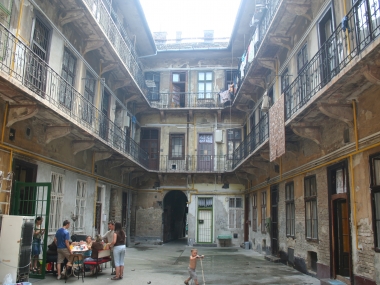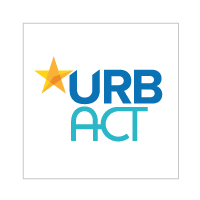URBACT launches report on Deprived Areas
Edited on
20 June 2019Urban poverty has been rising in the political agenda and one of the topics being covered under the European Urban Agenda is on the revitalisation of deprived areas.

In 2012 every fourth European, i.e. 124 million people was at risk of poverty or social exclusion. “The Europe 2020 strategy aims to reduce the number of people at risk of poverty or social exclusion by 20 million relative to 2010 or to around 19.5% of the total population. ...
Between 2008 and 2012 the number of people in the EU at risk of poverty or social exclusion increased by 6.5 million to almost a quarter (24.8%) of the population.” (EC, 2014:74, 77). Thus, despite the ambitious aims of the EU the situation worsened since the start of the financial crisis.
As a reaction on these trends urban poverty ’came back’ again on the political agenda. Under the Greek Presidency urban poverty has been selected as the main topic of the informal ministerial meeting regarding the urban perspective.
As poverty is increasing, the concentration of urban poor into deprived areas is also increasing. A substantial element of the urban poverty problem in Europe is to find policies and interventions to deal with such deprived neighbourhoods. The persistence of deprived areas threatens the sustainability of the European model of urban development and constitutes a social risk in Europe.
With regard to the growing threats of urban poverty and its spatial concentration, URBACT has launched an initiative to explore the existing national policies and practices of integrated regeneration of deprived areas. A background paper has been prepared and a questionnaire has been sent out to a group of member states to collect information about their practices. Finally a high-level seminar was organized for national authorities on 17 March 2015 in Brussels. This report written by Ivan Tosics (URBACT Thematic Pole Manager) provides a summary of all information collected during the initiative and can be considered as one of the contributions of URBACT to the European Urban Agenda.
The report "Integrated regeneration of deprived areas and teh new cohesion policy approach" can be found in English and in French.
 Submitted by URBACT on
Submitted by URBACT on




